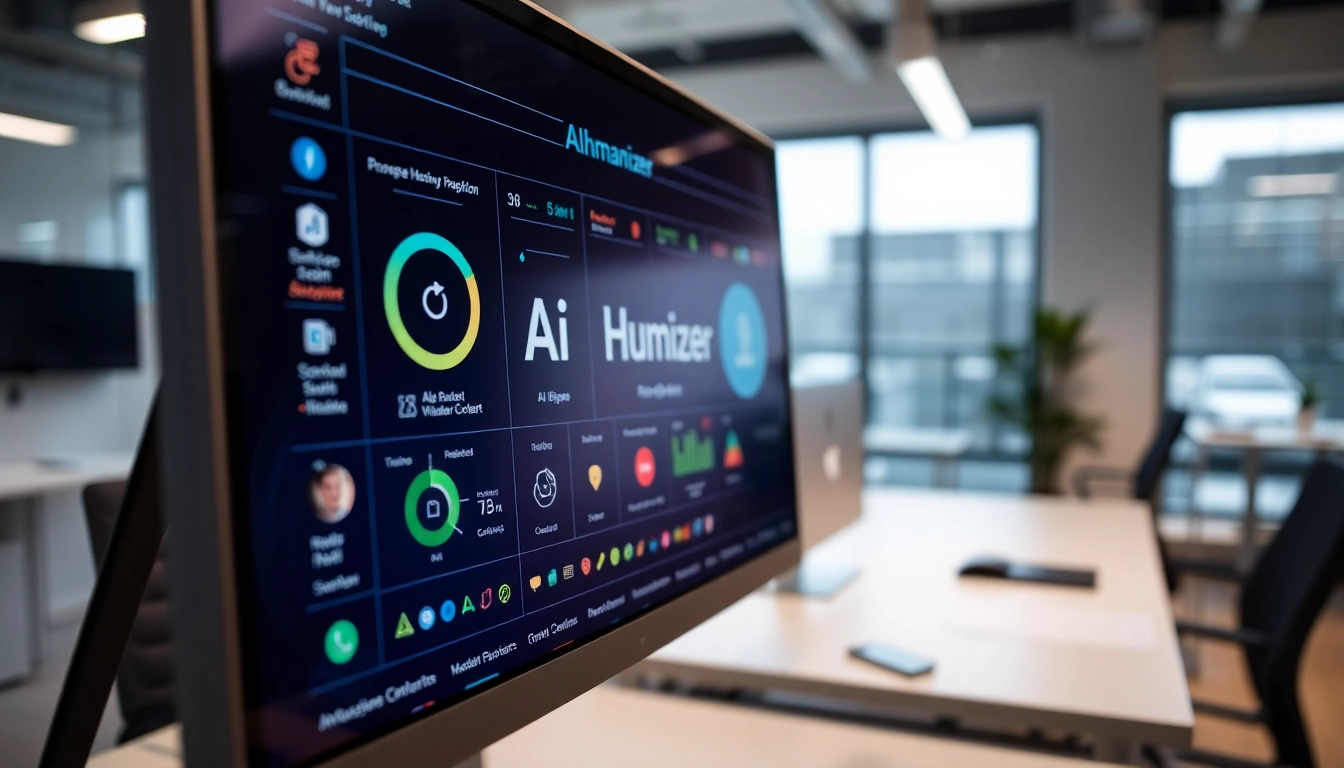Understanding Technology: Definition and Basic Concepts
What is Technology?
Technology, fundamentally, is the systematic application of scientific and mathematical knowledge to create tools, machines, and systems that enhance human life. It transforms knowledge into practical solutions or results, often indicated by the level of innovation embedded within its framework. The technology landscape is diverse, stretching from simple tools used in everyday tasks to complex systems embedded in industries such as healthcare, education, communications, and transportation.
The term ‘technology’ is derived from the Greek word ‘techne’, which means art or craft, while ‘logia’ means study or discourse. Thus, it refers to the study of making things. Over centuries, this has evolved into an encompassing term that describes the various means and methods employed to manipulate the environment to meet human needs and aspirations.
Types of Technology and Their Applications
Technology can be categorized into several types, each serving different purposes and applications. Below are some common classifications:
- Information Technology (IT): This involves using systems for storing, retrieving, and sending information. Computers and software applications are central to IT.
- Biotechnology: This field applies biological systems and organisms to develop technologies and products that improve our lives and the health of our planet.
- Renewable Energy Technology: Technologies such as solar, wind, and geothermal are harnessed to produce energy sustainably, reducing reliance on fossil fuels.
- Medical Technology: This encompasses a range of healthcare products and services, including diagnostic, monitoring, and therapy equipment.
- Communication Technology: This includes tools that facilitate communication over distances, ranging from telephones to internet services.
Each type of technology has its own unique applications, contributing to advancements in various sectors, which greatly affect daily life and overall societal progress.
The Role of Technology in Modern Society
Technology plays a pivotal role in shaping modern society, influencing how individuals interact, work, and live. It enhances productivity and efficiency in countless industries, facilitating faster communication and information dissemination. The Internet and social media, for example, have transformed how people connect, allowing for immediate information exchange across vast distances.
Moreover, technology continuously addresses the pressing challenges faced by societies, such as healthcare accessibility, education quality, and environmental sustainability. For instance, telemedicine and e-learning platforms have made healthcare and education more accessible, especially in remote areas. In summary, technology is not just a tool; it’s a fundamental element that drives societal evolution and change.
Key Innovations in Technology Today
Emerging Trends in Technology
The pace of technological advancement is constantly accelerating, influenced by changing consumer needs and global challenges. Some of the most significant emerging trends include:
- Artificial Intelligence (AI) and Machine Learning: AI is reshaping industries through automation, data analytics, and adaptive systems, allowing for better decision-making and operational efficiency.
- Internet of Things (IoT): IoT devices connect everyday objects to the internet, allowing for data sharing and enhanced functionality, from smart homes to smart cities.
- Blockchain Technology: Beyond cryptocurrency, blockchain is being utilized for secure transactions and data management across various sectors, including finance, healthcare, and supply chains.
- 5G Technology: The rollout of 5G promises faster internet and improved connectivity, enabling innovations such as enhanced virtual reality experiences and efficient remote working solutions.
These trends not only create new business opportunities but also present challenges such as security vulnerabilities that must be addressed proactively.
Impact of Artificial Intelligence on Various Industries
Artificial Intelligence is arguably one of the most disruptive technologies of recent times, influencing nearly every industry. Its applications vary widely, from enhancing customer service through chatbots to optimizing supply chains with predictive analytics.
In healthcare, AI assists with diagnostics and patient care management, leveraging large datasets to improve clinical outcomes. In finance, AI algorithms analyze market trends to aid in investment decisions. Similarly, in the automotive industry, AI drives advancements in autonomous vehicles, paving the way for a new era of transportation.
With its far-reaching implications, the impact of AI continues to foster debates on ethics, job displacement, and the necessity for regulatory frameworks to ensure beneficial outcomes for society.
Disruptive Technologies and Their Implications
Disruptive technologies fundamentally alter how businesses operate and industries function. They often render previous technologies and practices obsolete and can create new markets and value networks. Some notable examples include:
- Cloud Computing: By providing scalable resources and services over the internet, cloud computing has revolutionized how businesses structure their IT budgets and infrastructure.
- 3D Printing: This technology is transforming manufacturing by allowing for rapid prototyping and production of complex products at reduced costs and timelines.
- Augmented Reality (AR) and Virtual Reality (VR): These technologies offer immersive experiences that change how consumers interact with businesses and products, particularly in retail and tourism.
The implications of disruptive technologies extend beyond efficiency; they challenge regulatory bodies to rethink policies and frameworks that govern industries, prompting discussions around innovation, consumer protection, and safe practices.
Challenges in Technology Adoption
Common Barriers to Technology Integration
While technology presents tremendous opportunities, organizations often encounter barriers when attempting to integrate new solutions. Some common challenges include:
- Resistance to Change: Employees may be apprehensive about adopting new technologies due to uncertainty about skills or job security.
- Cost Constraints: High initial investments can deter organizations from implementing new technology, especially for small businesses with limited budgets.
- Lack of Training: Insufficient training on new systems can lead to underutilization, creating gaps in expected productivity improvements.
To combat these challenges, organizations should focus on fostering a culture of innovation, providing adequate training, and demonstrating clear benefits associated with the new technology.
Regulatory Issues Surrounding New Technologies
As technology continues to evolve, regulatory frameworks often lag behind, creating uncertainty and potential risks. New technologies, particularly in data privacy and AI, raise critical issues that regulatory bodies must address:
- Data Privacy Laws: The need for regulations like GDPR highlights the importance of consumer consent, data protection, and transparency in digital environments.
- Intellectual Property Rights: Emerging technologies challenge existing IP laws, necessitating updates and adaptations to ensure protections are relevant.
- Compliance Standards: Industries such as healthcare and finance face strict compliance requirements that can complicate technology adoption.
Organizations must remain proactive in staying informed about evolving regulations, engaging with policymakers, and ensuring compliance to mitigate legal risks as technology advancements unfold.
Addressing Ethical Concerns in Technology Use
Ethical considerations are essential in the realm of technology, especially as innovations such as AI and big data become prevalent.
Key ethical issues include:
- Bias in Algorithms: Algorithms can perpetuate existing biases if not carefully constructed, leading to unfair outcomes, particularly in sectors like finance and hiring.
- Surveillance and Privacy: The balance between security and individual privacy must be navigated as technologies like facial recognition become mainstream.
- Job Displacement: Automation raises concerns for workers in various sectors, necessitating discussions about job retraining and education.
Organizations must cultivate ethical practices by prioritizing fairness, privacy, and transparency while promoting inclusion in technology development processes.
The Future of Technology: Predictions and Scenarios
Potential Developments in Technology Over the Next Decade
The next decade is poised to see transformative developments across all facets of technology. Key predictions include:
- Advancements in Quantum Computing: Quantum computing holds the potential to revolutionize industries by solving problems beyond the capabilities of traditional computers.
- Global 5G Adoption: The widespread adoption of 5G technology will enhance connectivity, enabling the growth of smart cities and autonomous systems.
- Increased Focus on Sustainability: Technology will increasingly integrate sustainability practices, from renewable energy sourcing to minimizing carbon footprints in production processes.
As technology evolves, organizations and individuals must stay adaptable, embracing change while striving for innovative, sustainable solutions.
How Technology Will Change Daily Life
Technology is expected to fundamentally alter daily life significantly. Some anticipated changes include:
- Smart Homes: The integration of IoT will lead to smarter living environments, optimizing energy use and enhancing security.
- Personalized Experiences: AI-driven recommendations will make services and products more relevant to individual preferences, enhancing user satisfaction.
- Remote Work and Learning: A shift towards remote capacities will establish new norms in work and education, fostering hybrid models that combine flexibility and productivity.
These changes are not just confined to technology; they will influence cultural practices and societal values as well.
The Importance of Preparing for Technological Change
As technology evolves, preparing for its impact is vital. This preparation includes:
- Upskilling and Reskilling: Continuous education and training will become essential to prepare the workforce for new roles and technologies.
- Emphasizing Soft Skills: Alongside technical skills, soft skills such as critical thinking and emotional intelligence will be crucial in navigating technological changes.
- Engaging Stakeholders: Collaborating with various stakeholders, including government bodies, industry regulators, and communities, will enable a comprehensive understanding of technology’s implications.
By actively preparing for technological evolution, society can harness its benefits while mitigating challenges.
Measuring the Impact of Technology
Metrics for Evaluating Technology Success
To understand the effectiveness of technology integration, organizations must establish clear metrics for evaluation. Relevant metrics include:
- Return on Investment (ROI): This quantifies the financial returns realized from technology investments, helping stakeholders assess value.
- User Adoption Rates: Understanding how quickly and widely technology is accepted by users provides insight into its usability and relevance.
- Performance Improvement: Metrics that track efficiency, speed, and accuracy serve as indicators of technology’s effectiveness.
These metrics enable organizations to make informed decisions, assess areas for improvement, and showcase successes associated with technology adoption.
Case Studies of Effective Technology Implementation
Examining successful case studies provides insight into effective technology implementation. For example:
- Amazon’s Supply Chain Efficiency: Amazon utilizes advanced algorithms and robotics to optimize its supply chain, significantly reducing delivery times and operational costs.
- Netflix’s Streaming Model: By leveraging data analytics, Netflix offers personalized content recommendations, streamlining user experiences that drive engagement and retention.
- Ride-sharing Apps: Platforms like Uber have transformed transportation by employing geolocation technology and efficient routing algorithms, redefining traditional taxi services.
These examples highlight the tangible benefits of strategic technology implementation and provide a blueprint for other organizations to follow.
The Future of Technology: Sustainable Practices and Innovations
The future landscape of technology will increasingly prioritize sustainable practices. Innovations in sustainability will manifest in:
- Green Technology Initiatives: Companies will adopt practices that minimize environmental impacts, such as energy-efficient production processes and sustainable materials.
- Circular Economy Models: Emerging technologies will enable businesses to implement models that focus on recycling and reusing resources to reduce waste.
- Carbon Tracking Systems: Technologies that track carbon footprints will become essential for organizations committed to sustainability goals.
By fostering sustainable innovations, technology can align with social responsibility, ensuring a healthier planet for future generations.













